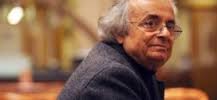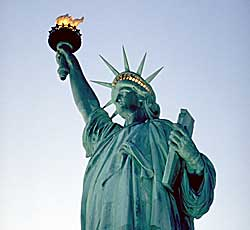|
|
Craig White's Literature Courses Online Texts |
|
|
After the Funeral of Assam Hamady by Sam Hamod |
 |
Biographical background for Sam Hamod:
![]() born in Gary, Indiana, to a
family of Lebanese-Muslim descent that helped build a mosque there.
born in Gary, Indiana, to a
family of Lebanese-Muslim descent that helped build a mosque there.
![]() Undergraduate and graduate degrees at Northwestern University; Ph.D.
from Iowa Writers' Workship
Undergraduate and graduate degrees at Northwestern University; Ph.D.
from Iowa Writers' Workship
![]() Taught at Princeton, Michigan, Iowa,
Wisconsin, Howard, and Valparaiso Universities.
Taught at Princeton, Michigan, Iowa,
Wisconsin, Howard, and Valparaiso Universities.
![]() Numerous poetry collections include
Just Love Poems for You
(2006), The Arab Poems, The Muslim Poems
(2000), which won the Ethnic Prize in Poetry, and
Dying with the Wrong Name: New and Selected Poems 1968–1980
(1980), which was nominated for a Pulitzer Prize.
Numerous poetry collections include
Just Love Poems for You
(2006), The Arab Poems, The Muslim Poems
(2000), which won the Ethnic Prize in Poetry, and
Dying with the Wrong Name: New and Selected Poems 1968–1980
(1980), which was nominated for a Pulitzer Prize.
![]() As a young man he helped form
the Federation of Islamic Associations in Cedar Rapids, Iowa, and was
Director of The Islamic Center in Washington, DC.
As a young man he helped form
the Federation of Islamic Associations in Cedar Rapids, Iowa, and was
Director of The Islamic Center in Washington, DC.
![]() "I've
always mixed Arabic with English in my poems," he says. "Certain things have
more power in other languages."
"I've
always mixed Arabic with English in my poems," he says. "Certain things have
more power in other languages."
Sources: http://www.poetryfoundation.org/bio/sam-hamod; http://www.opednews.com/author/author51135.html; http://contemporaryworldliterature.com/blog/literary-non-fiction/growing-up-muslim-lebanese-in-america/; and http://www.saudiaramcoworld.com/issue/199004/poetry.in.the.blood.htm, the last of which reviews a recent anthology of Arab-American poetry in the past century.
Instructor's note: poem used by permission of author; prayer translations by Abdullah Yusuf Ali (1872-1953) at www.quran.com.
Background: "Sullee," a.k.a. "Salah" ("Muslim prayer") is observed by Muslims five times a day at prescribed hours, preceded by ablution or ritual cleansing.
Discussion questions:
1. How does the poem's narrator ("me") exemplify a "second-generation immigrant" caught between the Old World and assimilation to the USA's dominant culture?
2. How much assimilation (or acculturation) has already occurred? What images or symbols signify assimilation or acculturation?
3. What position or status does religion or religious expression have in modern America? How do immigrants in the poem and elsewhere resist or accommodate assimilation in terms of their religious practices?
![]()
After the Funeral of Assam Hamady
by
Sam
Hamod
FOR MY MOTHER, DAVID AND LAURA
[Author's note:] The Muslim prayer in this poem is analogous to The Lord's Prayer.
Cast:
![]() Hajj Abbass Habhab: my grandfather
[Hajj = term of respect for one who has made pilgrimage to Mecca]
Hajj Abbass Habhab: my grandfather
[Hajj = term of respect for one who has made pilgrimage to Mecca]
![]() Sine Hussin: an old friend of my father
Sine Hussin: an old friend of my father
![]() Hussein Hamod Subh: my father
Hussein Hamod Subh: my father
![]() me
me
6pm
middle of South Dakota
after a funeral in Sioux Falls
my father and grandfather
ministered the Muslim burial
5
of their old friend, Assam Hamady
me—driving
the 1950 Lincoln
ninety miles an hour
"STOP! STOP!
stop this car!"
10
Why?
"STOP THIS CAR RIGHT NOW!"—Hajj
Abbass
grabbing my arm from back seat
"Hysht Iyat? (What're you yelling about?)"—my Father
"Shu bikkeee? (What's happening?)"—Sine Hussin
15
I stop
"It's time to pray"—the
Hajj
yanks his Navajo blanket
opening the door
"It's time to pray, sullee [sullee
or salah
= the prayer]
20
the sun sets
time for sullee"
my Father and Sine Hussin follow
obedient
I'm sitting behind the wheel
25
watching, my motor still running
car lights scream by
more than I've ever seen in South Dakota
the Hajj spreads the blanket
blessing it as a prayer rug
30
they discuss which direction is East
[Muslim prayers are directed toward Mecca in Saudi Arabia]
after a few minutes it's decided
it must be that way
they face what must surely be South
they face their East, then notice
35
I'm not with them
"Hamode! get over here, to pray!"
No, I'll watch
and stand guard
"Guard from what—get over here!" 40
I get out of the car
but don't go to the blanket
My father says to the others:
"He's foolish, he doesn't know how
to pray."
45
they rub their hands
then their faces
rub their hands then
down their bodies
as if in ablution
[ablution = ritual washing]
50
their feet bare
together now
they begin singing
Three old men
chanting the Qur'an in the middle
[Quran, Koran = Muslim scripture]
55
of a South Dakota night
"Allahu Ahkbar
["God is great"]
Allahu Ahkbar
Ash haduu n lah illah
illiliawhh [I bear witness that there is none
worthy of worship except Allah]
Ash haduu n lah illah illilawhh
60
Muhammed rasoul illawh" [And I bear witness that Muhammed is the messenger of Allah]
in high strained voices they cant [cant = chant]
"Bismee lahee
[in the name of Allah]
a rah'manee raheem"
[most merciful, most gracious]
more cars flash by 65
"malik a youm a deen
[Master of the Day of Judgment]
ehde nuseerota el mustakeem
[guide us to the Straight Path]
seyrota la theena"
[to the way of those]
I'm embarrassed to be with them
"en umta ailiy him
[on whom Thou has bestowed]
70
ghyrug mugthubee aliy him"
[Thy grace, those whose (portion) is not wrath]
people stream by, an old woman strains a gawk at them
"willathouu leen—
[and who go not astray]
Bismee lahee"
[in the name of Allah]
I'm standing guard now 75
"a rah'maneel raheem
[most merciful, most gracious]]
khul hu wahu lahu uhud"
[Say he is Allah, the one and only]
They're chanting with more vigor now
against the cars—washing
away
in a dry state
80
Hamady's death
he floats from their mouths
wrapped in white
"Allahu sumud
[Allah, the eternal, the absolute]
lum yuulud wa'alum uulud"
[He begetteth not, nor is He begotten] 85
striped across his chest, with green [green = traditional color of Islam, assoc. w/ paradise]
"Walum yankun a kuf one uhud
[Nor is there any like unto Him]
will thouu leen"
[Nor of those who have gone astray (not in original
prayer)]
his head in white, his gray mustache still
"Ameen . . . " [Amen] 90
I hear them still singing
as I travel half-way across
America
to another job
burying my dead
95
I always like trips, traveling at high speed
but they have surely passed me
as I am standing here now
trying so hard to join them
on that old prayer blanket—
100
as if the pain behind my eyes could be absolution [absolution = cleansing or, metaphorically, forgiveness of sins]




